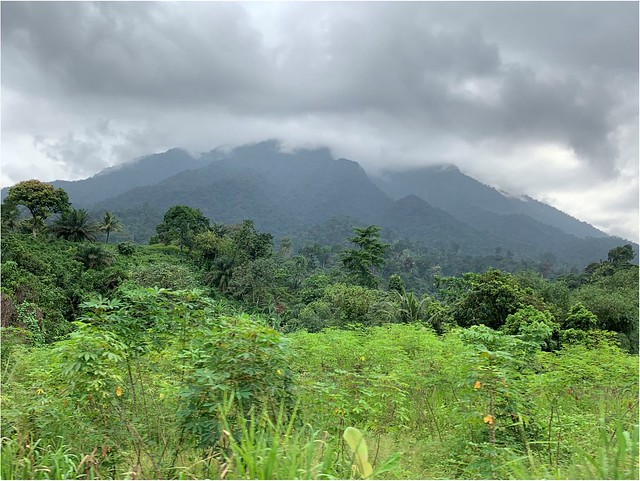The Wistar Institute Collaborates with University of Buea in Cameroon to Expand Antiviral and Drug Discovery
Dr. Ian Tietjen, Research Assistant Professor in the Montaner Lab, recently returned from Cameroon where he is collaborating with scientists who are developing a new drug discovery research facility that will study medicinal plants, natural product compounds, and locally-synthesized chemical compounds to treat infectious diseases.
Dr. Tietjen’s international collaboration with his colleague Dr. Fidel Ntie-Kang of the University of Buea began in 2015. Ntie-Kang, a computational chemist, specializes in drug and protein interactions to make predictions about how natural product compounds might interact with therapeutic targets. Tietjen has collaborated in conducting computational chemical screens across huge libraries of millions of compounds to find which ones might be interacting the best for future clinical use.
Ntie-Kang approached Tietjen to forge a new collaboration around capacity building and knowledge exchange. When finished, this new drug discovery facility now under construction at the University of Buea will have about a dozen African researchers working on natural medicinal products and other chemical compounds for antiviral drug discovery and development.
This past trip, Tietjen traveled to Cameroon to assess the University’s plans and help create a strategy that would best apply Wistar’s resources to their needs. Beginning in September 2022, Wistar will host three scientists from the University of Buea for a year, including Ntie-Kang, for immersive training in the many laboratory techniques that Wistar researchers carry out so they may bring this expertise and capacity back to the University of Buea. Next year, Tietjen intends to return to Cameroon with the University of Buea research team to train local students and new staff at the drug discovery facility in molecular and cell biology and drug discovery techniques.
“This collaboration gives us the unique chance to share our research and education expertise with researchers and students that might otherwise not get a chance to work with us,” Tietjen says. “However, because Dr. Ntie-Kang and his colleagues are already established scientists in computational chemistry, natural product chemistry, and infectious diseases that disproportionately affect people in low-income countries, we have just as much to learn from them, if not more, than they do from us.”
Tietjen also has other research collaborations underway in South Africa, Botswana, Ghana, and Guinea centered around identifying chemical compounds from traditional medicinal plants used for COVID-19 and HIV management and elucidating their mechanisms of action.

